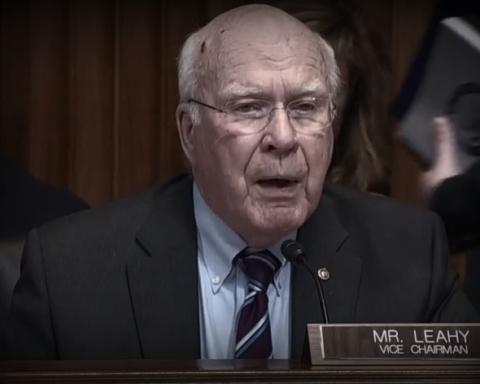The Obama administration has used consumer protection laws to force a notorious revenge porn website operator to destroy videos and photographs of people he surreptitiously obtained and shared for profit.
The Federal Trade Commission also forced Craig Brittain to agree to refrain from publicly sharing nude photographs and videos without the subjects’ “affirmative express consent” as part of the settlement announced Thursday. Additionally, it compelled him to agree to be forthright about how he plans on using personal information he collects online.
The deal came after the FTC accused Brittain of using deceptive practices both to obtain prurient material and to get its unwilling subjects to pay him to scrub it from his website.
The federal consumer watchdog said that Brittain’s methods violated section 5(a) of the Federal Trade Commission Act—a statute that restricts ‘‘unfair or deceptive acts or practices in or affecting commerce.”
“This behavior is not only illegal but reprehensible,” Jessica Rich, FTC Bureau of Consumer Protection director said Thursday in a press release. “I am pleased that as a result of this settlement, the illegally collected images and information will be deleted, and this individual can never return to the so-called ‘revenge porn’ business.”
Brittain used to operate an infamous Colorado Springs-based website called “IsAnybodyDown.com”– an outfit that boasted of attracting a “higher level of hatred” than its competitors, the FTC noted in its initial complaint.
When it emerged that he was engaged in deceptive commercial activity and not simply a passive recipient of nude material—by paying men to get naked photographs for his website–Brittain’s legal trouble began. Operators of revenge porn websites claim that their media are protected under section 230 of the Communications Decency Act, which absolves website owners of legal responsibility for user-submitted content.
Brittain didn’t even take the material offline when he was accused of paying for nude imagery, however. He deactivated Is Anybody Down, and transferred its contents to ObamaNudes.com and ObamaNudes.net. One anti-revenge porn activist told the New York Observer she was “hoping that it will draw the president’s attention to the issue of revenge porn!”
Other deceptive practices employed by Brittain were detailed by the FTC complaint. He posed as a woman sharing nudes of herself online to solicit photographs of women “with their intimate parts exposed in return,” federal regulators said. He subsequently “posted them on the Website without their knowledge or permission.”
Brittain also solicited lewd imagery from anonymous sources in a system that allowed him to link the material back to its subjects. He then charged the unwitting subjects of the porn between $200 and $500 to take their images offline through a service that he owned–while describing it as belonging to a third party.
“Most submitters were men sending photographs of women,” the FTC noted. The women, the agency added, “reported that they suffered significant harm from having their photographs and personal information, including location information, posted on the site.”
“Some received unwelcome contacts from strangers, including requests for additional photographs,” the commission’s complaint continued. “Many worried about harm to their reputations because their friends, family, and co-workers could easily see the photographs if they conducted a simple Internet search for the subject’s name.”
For all his troubles, and the woes he inflicted upon “over 1,000 people with their intimate parts exposed,” Brittain earned a mere $12,000 from running IsAnybodyDown, the FTC said.
Members of the public are able to comment on the settlement until March 2.





